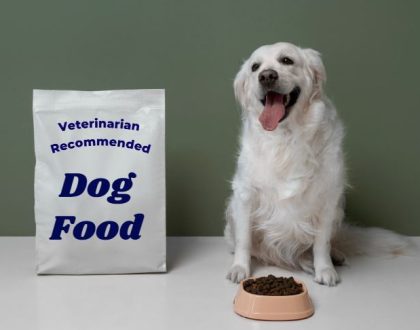
the scientific study of pet nutrition by veterinary nutrition specialists and experts.
Dietary Supplements for Pets: Harmful or Helpful?

If you take dietary supplements yourself, you’re not alone: Over half of all Americans take dietary supplements on a regular basis, accounting for 15 billion dollars in sales per year! Although the number of dogs and cats taking dietary supplements is much lower (somewhere between 10-30% in the general population), it appears to be growing and is much higher in pets with certain medical conditions. In magazines and on the internet, advertisements for dietary supplements abound. While it is tempting to believe the claims of disease prevention, miraculous treatment, or even cures that are supposed to come from giving a few pills, knowing the real facts about supplements can help to determine which ones might be useful, which ones are useless, and which ones can actually be harmful to your pet.
First, it is important to understand that dietary supplements (whether for humans or pets) are regulated very differently than drugs. Unlike drugs, dietary supplements do not require the US Food and Drug Administration (FDA) to review product effectiveness, safety, or quality prior to marketing. The result is that the FDA has little control over supplements. In fact, while drug manufacturers must prove the drug to be safe and effective before it is sold, the FDA must prove that a supplement is unsafe. It is easy to imagine that with the thousands of supplements on the market today, this is an unrealistic task for the FDA. Therefore, the safety, quality control, and effectiveness of dietary supplements can be very questionable.
Although supplements are thought to be safe because they are “natural,” this is not always true. Humans and pets can get sick or even die as a result of dietary supplements, so safety is not a given. And even if a supplement is proven to be safe for humans, it may not be safe for pets who metabolize some supplements differently. Even if the supplement by itself is safe, its use in combination with medications an animal may be taking can cause dangerous interactions. In addition, numerous studies have shown that many supplements have terrible quality control. This means that if you buy a supplement that is supposed to contain 500 mg per tablet, it may contain 500 mg but it also may contain 1000 mg or nothing at all! Some supplements may be contaminated with mercury, lead, or other substances. That doesn’t even get into the issues of supplement tablets that don’t dissolve appropriately (which means they won’t get absorbed).
Even if the safety and quality control issues were not an issue, effectiveness has been proven for very few dietary supplements in humans, let alone for pets. Most pet supplements are used based on theory, anecdote, or data from other species. Properly conducted studies are few and far between for dietary supplements. Clearly, more research is needed in this area to determine which of the supplements have beneficial effects and which are a waste of money. We also need to know optimal doses for pets, which shouldn’t be based just on the amount given to a person. Patients I see may be taking either extremely high doses of a supplement, may be on a dose too low to have any potential benefits, or may be taking multiple supplements that can overlap or interact.
Given the many concerns listed above, it’s important to think carefully about whether your pet really needs supplements in the first place. In pets, the most common supplements used are multivitamins, joint supplements, and fatty acids so let’s look at the role of those. Unless a pet is eating a nutritionally unbalanced diet, multivitamins are not needed. In fact, giving vitamin or mineral supplements to a pet eating a balanced diet may put them at risk for toxicity! Complete and balanced pet foods are made to give your pet just the right amount of nutrients and adding more can actually be harmful. Examples where I would suspect nutritional deficiencies include a home-prepared diet that has not been carefully designed by a board-certified veterinary nutritionist, a diet labeled as “for intermittent or supplemental use,” or a diet made by a small company that does not have adequate quality nutritional knowledge or quality control standards. Even in these cases, simply giving a multivitamin is unlikely to solve the problem and more careful evaluation and correction are needed. Glucosamine/chondroitin supplements, if they are of good quality, may have modest benefits in some animals with arthritis. And fish oil supplements may be beneficial for pets with certain medical conditions, such as heart disease, kidney disease, and cancer. However, even these common supplements have potential side effects and are not right for every dog and cat with these conditions.
So, how can you find out what’s best for your dog or cat? The first step is to talk to your veterinarian about whether supplements are appropriate for your pet. This will depend on your pet’s age, activity level, medical conditions, diet, and a variety of other factors. If your veterinarian recommends a supplement, be sure to also ask for specific recommendations on dose and brand. The resources I use most commonly to select specific brands that have good quality control are: Consumerlab.com and the Unites States Pharmacopeia Dietary Supplements Verification Program
Dietary supplements are not necessary for healthy pets eating a nutritionally balanced diet, but may benefit pets with certain medical conditions. Your veterinarian can help you determine which supplements, if any, are right for your pet, what dose to use, and which specific brands have the quality control necessary to keep your pet happy and healthy.
For more information, Dr. Freeman was quoted in a recent article on pet supplements:
Assessing pet supplements. JAVMA News, Jan 15, 2017: https://www.avma.org/News/JAVMANews/Pages/170115a.aspx
PBS Frontline story on supplements and safety:
www.pbs.org/wgbh/frontline/film/supplements-and-safety/
Useful websites on dietary supplements
- Consumerlab: Site (with a small subscription fee for use) that independently evaluates dietary supplements (primarily for human supplements but some pet supplements are included) Consumerlab.com.
- Food and Drug Administration (FDA): Regulatory and safety issues of dietary supplements, adverse event reporting http://www.fda.gov/food/DietarySupplements/default.htm
- Mayo Clinic drugs and supplements information: Fact sheets on human supplements and herbs http://www.mayoclinic.com/health/drug-information/DrugHerbIndex
- National Institutes of Health (NIH) Office of Dietary Supplements: Evaluating supplements, fact sheets, safety notices, internet health info http://ods.od.nih.gov
- United States Department of Agriculture (USDA) Food and Nutrition Information Center: General supplement and nutrition information, links to a variety of dietary supplement websites http://fnic.nal.usda.gov/dietary-supplements
- United States Pharmacopeia Dietary Supplement Verification Program: Independent testing of dietary supplements (human supplements only) http://www.usp.org/usp-verification-services/usp-verified-dietary-supplements
Want to read more information on feeding your pet?
Subscribe to always know when we add new material!
Recommended Posts

Can Diet Help With My Dog’s Seizures?
January 18, 2024

The Most Popular Holiday Foods…That Your Pet Should Avoid!
December 08, 2023

Veterinarian Recommended Pet Foods: What You Need to Know
November 05, 2023

